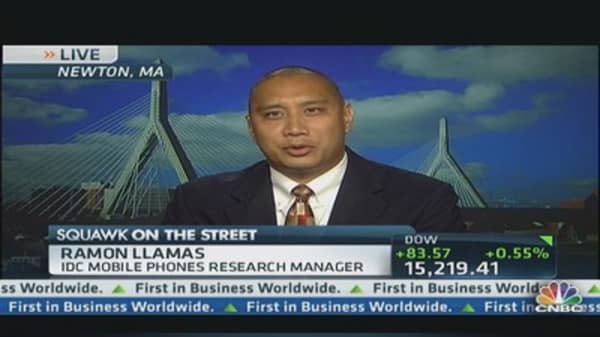Samsung Electronics, hit by waning demand in its key mobile division, needs to double up efforts in the world's fastest growing markets for smartphones, or it risks shrinking its business further, analysts told CNBC.
Local smartphone makers in emerging markets like China and India are rapidly souping up the quality of their lower-cost models, and could become a real threat to the world's biggest smartphone vendor especially if it doesn't act fast.
"Right now, Samsung isn't targeting that segment. But they can't afford to ignore it," said Ajay Sunder, senior director, ICT Practice, Frost and Sullivan.
"Chinese and Indian vendors have models that are close to $100-200 and they are decent smartphones," Sunder added, referring to companies such as China's Huawei and Lenovo and India's Micromax. "Samsung still doesn't have a healthy pipeline of models between these average selling prices."
(Read more: Smartphone 'saturation' fears for Apple, Samsung)
Analysts forecast demand for premium smartphones will plateau in the coming months, given high penetration rates in developed nations. Penetration for smartphones in developed markets is estimated at between 75-85 percent, according to Citi, which forecasts saturation could be reached as early as 2014.
Shares of Samsung declined 0.9 percent on Friday following the release of the company's second quarter earnings. The firm posted a net profit of 7.77 trillion won ($7 billion) for the April to June period from 5.05 trillion won a year earlier, in line with estimates, but profits at its mobile division declined from the previous quarter.
(Read more: Samsung's profit jumps 50%, but mobile business shrinks)
"The reaction of the market is saying that Samsung has been a bit slow to adjust its strategy to the smartphone market, which is changing right now," said Tom Kang, managing director, Mobile Devices at Counterpoint Technology Market.





